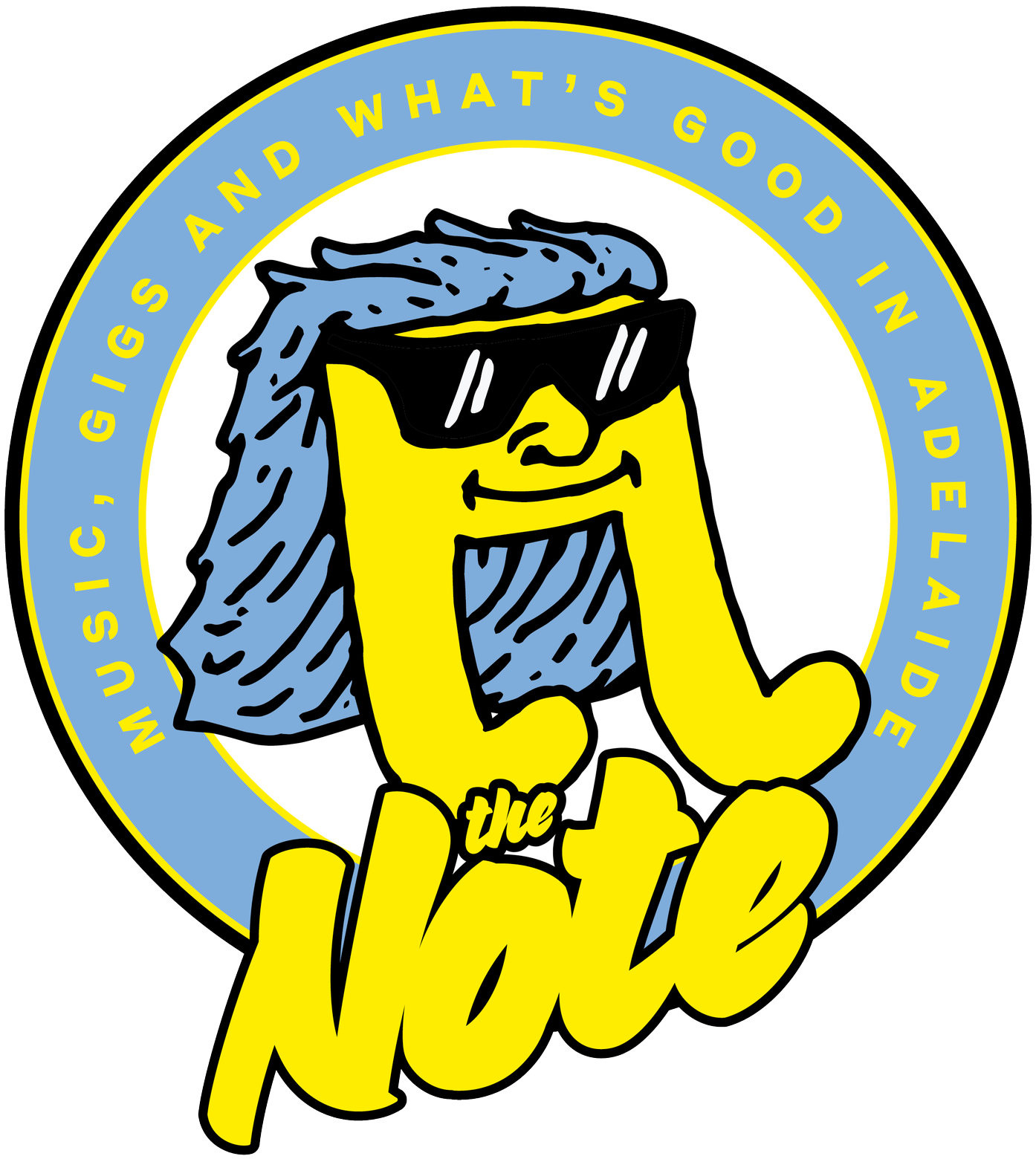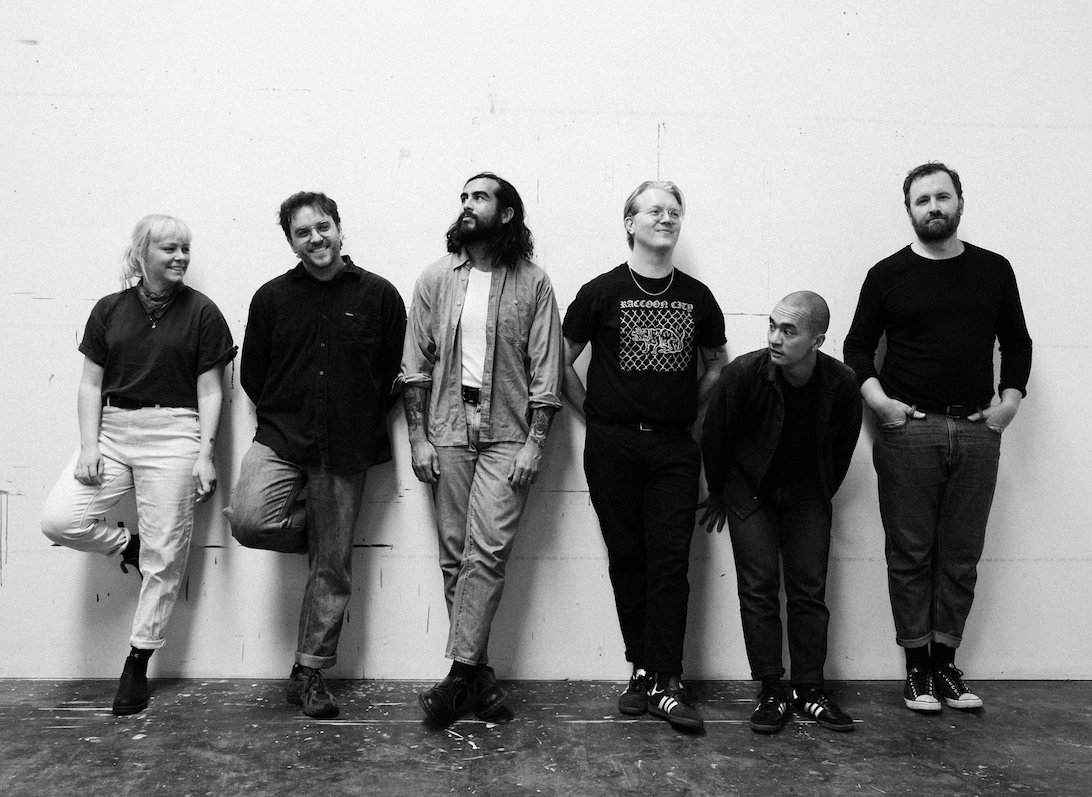Exclusive: Indiago - ‘The Line’ Album Stream
Available to listen to today exclusively via The Note, The Line is the stunning debut album from local rockers Indiago.
Image by Studio 1.13
It’s been a long time coming, 12 years in fact, but Adelaide Hills rockers Indiago have finally delivered their hotly anticipated debut album The Line. And in even better news, The Note has scored an exclusive preview of the album one day early, with fans able to give the record a spin below.
Featuring nine tracks of electrifying Aussie rock and roll with feeling, The Line is a dynamic showcase of what Indiago is all about – driving riffs, anthemic choruses and heartfelt and relatable lyrics. Recorded at Treetop Studios in Aldgate and produced by the band’s drummer Matt Cooper, The Line is a riveting collection of rock tunes you’ll have on repeat.
Chating with the band about the album, frontman Will Solomon explained The Line is “a pretty good representation of all the different sonic aspects of Indiago.”
Once The Line is out in the world, Indiago are looking at taking the album out on the road and sharing the new songs with Aussie audiences early next year.
Be one of the first to hear The Line and read our revealing chat with frontman Will Solomon below.
Congratulations on your debut album, The Line. It’s a fantastic listen. In your own words, tell fans what they expect when listening to the record.
Thanks, mate! This has been a long time coming. It’s a pretty good representation of all the different sonic aspects of Indiago. Expect to be head-banging one minute and crying the next. It’s a journey!
Indiago has been writing and recording The Line for the past three years, but the band has been together for close to 12 years. Tell us about the process of recording the album and the journey to get to this point.
We all grew up together. We’re family basically. We went through high school together and formed the band at the end of year 12. The band became busy pretty quickly and gigs started flowing in as soon as we released our first EP (Indiago). We had absolutely no idea what we were doing, so we just kept gigging and touring and riding the wave.
We’d always wanted to record an album. It’s something all of our favourite bands have done and we think it’s still the best way to truly listen to an artist. It wasn’t until the pandemic hit and live shows were taken away that we finally had the opportunity to stop and write. We saw this as the perfect excuse to start the record.
What’s been the most challenging aspect of writing and recording the album?
For us, the actual writing and recording come quite naturally. We’re lucky that we’ve worked together for so long and have no issues discussing and telling each other how it is. We also have access to a high-quality studio and have a band member as a producer/engineer, so we’re extremely lucky there!
The hardest part we find, as independent artists, is the release process. Press, pitching, distribution, social media, bookings, all of the shit bits that people don’t think about. There’s a lot of hard work and long hours that go on behind the scenes and that takes time away from the songwriting and musical side of things quite often.
Talk us through the band’s creative process. Is it a collective experience or is someone leading the charge?
Generally, a song starts with a riff, a lead line, a vocal melody or just an idea from anyone in the band. I’ll go away and write some lyrics and melodies to it and from there, it starts to take shape. Once the general outline is there (verses, chorus, bridge, etc.), then the entire band comes together and it’s sculpted in the studio into a song. It’s very much a collective experience, we all have a part to play and everyone brings their own unique aspect to the songs. It’d be an album full of sad, acoustic blues songs if it was entirely up to me.
You originally had around 20 songs and whittled this down to nine. What influenced your decisions when picking the songs that make up the album?
We wanted to create a record that flowed from start to finish, but we also wanted each song to be different and show a different side of the band’s songwriting. In a way, we’ve been creating this for over a decade. Some of these songs were written many years ago. We included some of our old style, but it’s cool to see how we’ve matured musically. Not so much in other ways… (haha)
You workshopped the album in bassist Shane Cox’s home studio. How much of a benefit was it to have access to a studio 24/7 where you could lay down tracks and share ideas in a welcoming space?
At the beginning of the album writing process, Shane and I would get together a few times a week. We set the time aside purely for writing and re-working old demos. It’s amazing how well ideas and emotions can flow when you’re in a comfortable space without time constraints. To do this in a studio where we were paying by the hour would’ve been a nightmare! Some days we’d get three or four tracks down, others it’d take hours to be happy with one simple chord progression.
Image by Studio 1.13
You recorded The Line at Treetop Studios with your drummer Matt Cooper behind the boards. What was that experience like and what did Matt bring as a producer?
It was incredible. We use Treetop Studios as our live rehearsal space as well, so we were right at home there. Again, to be comfortable and not have the relentless stress of time constraints on your shoulders was unreal. As much as we’ve enjoyed the recording process in other studios over the years, it doesn't compare to recording at our second home.
Matt’s such an important part of this family both as a musician and as a producer. We’re in this unique position where he knows us all so well. So when we’ve got a crazy idea or we’re struggling to explain something sonically, he’s so quick to figure it out and he’s often a few steps ahead of us. Matt’s also not afraid to tell us what will and won’t work, he knows exactly when to switch between band/family member and producer.
Of the ten songs on the album, you’ve released four as singles – ‘Bones’, ‘Dream’, ‘Shade’ and P.L.B.’. Each track reveals a different side of the band. Was this a conscious decision to show music lovers the full spectrum of Indiago?
Absolutely. They’re all quite different and show different sides of the band musically. The different instruments used across the record and the different styles/genres/influences people can expect to find. We wanted to give an example of the emotions you can expect to feel across the record as well. A bit of melancholy, a bit of sorrow, a bit of angst and some energetic, uplifting stuff in there too. There are still a few surprises on the album, but these tracks help paint the picture for sure.
The album is full of powerful rock tunes, but the final track ‘Don’t Take That From Me’ is an emotive acoustic number. What can you tell us about this one and why did you decide to end the album with this song?
I wrote ‘Don’t Take That From Me’ on the acoustic guitar in about 15 minutes. It was peak-pandemic and I had been in a pretty rough headspace. This song was all about pulling myself out of that. As artists, we’re constantly being compared to others as we put ourselves out there for the world to judge. That can be really taxing at times. This song’s all about celebrating the little things and being proud of what you’ve achieved, regardless of how far you have to go.
It’s hard to play favourites but is there one song on the album that really resonates with you or a track you hope people enjoy?
That is difficult. I’d say one of my personal favourites is the song ‘Time’. It takes you on a real journey and ends with a cool, bluesy instrumental.
A bit of trivia on that one: I wrote the lead guitar solo in the instrumental and used to play it live. I hadn’t recorded the guitar line yet, but Matt needed something there so he could mix the track. He took it upon himself to learn the solo and played it. He never intended on keeping it, but the moment we all heard it we immediately told him we were keeping it. It has this raw, authentic vibe to it that matches the song perfectly and that’s how the track remains today.
The album artwork was created by guitarist James Fishers and is a tribute to the Adelaide Hills and Mount Barker, which is where you all grew up. Why is this representation important to the band?
It’s where it all began for Indiago and regardless of where we travel, it’ll always be home. We all grew up in different parts of the Adelaide Hills and Mount Barker Summit was the recognisable landmark that sat above the hills. It was the first thing you could see on the highway, letting you know when you were home. If you know, you know.
Once we’d decided on the idea, James (a qualified Outdoor Education lecturer) drew the outline of the summit and we’ve used that as our artwork across the whole album roll-out.
What do you hope people take away from listening to The Line?
We hope people like it. Hopefully, everyone finds one or two songs that resonate with them and it can help them through the highs and lows of life. We’re pretty proud of it and we’re stoked to finally get it out there. Hopefully, people are turning back to honest, Australian rock music. Most of all, we hope it makes people excited for what’s next to come.
Describe The Line in three words.
Honest. Emotional. Rollercoaster.
You can stream The Line above and keep up to date with the band’s future plans here.











